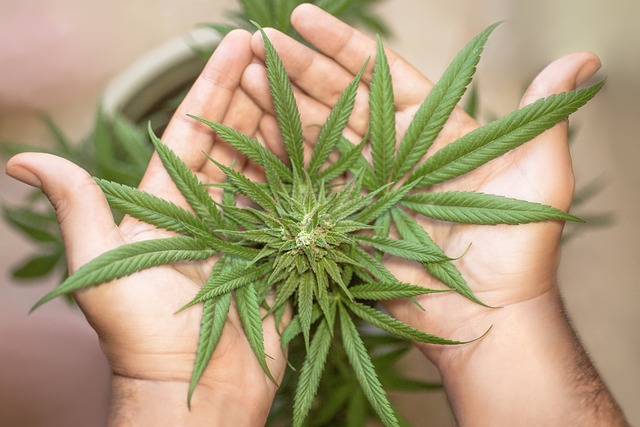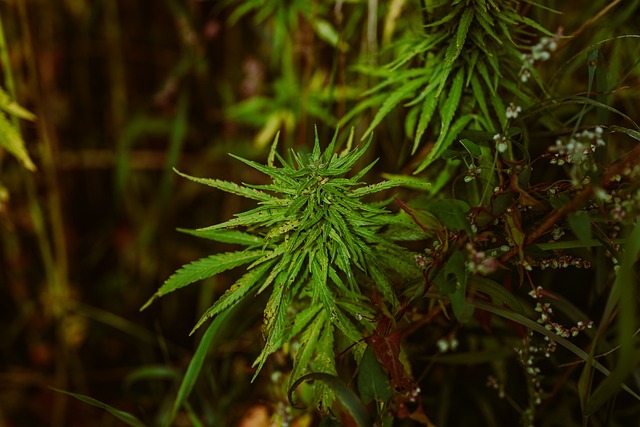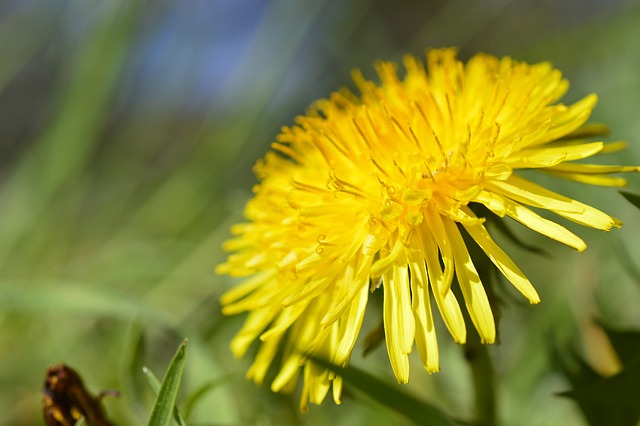2021 marked a pivotal year for cannabis legislation in Alabama, with the state legalizing hemp and its derivatives like THCA, opening up new avenues for medical use. THCA, a non-psychoactive compound found in hemp, is now legally available in Alabama due to its potential therapeutic benefits without the psychoactive effects of THC. The state's evolving legal framework for cannabis-related substances has led to a nuanced understanding of THCA, which is not explicitly scheduled under the Alabama Controlled Substances Act but must remain in its acid form to avoid being classified as a controlled substance due to its conversion into THC. Navigating this legality requires careful attention, especially for stakeholders involved in the cultivation and handling of THCA flowers. The state's humid subtropical climate presents unique challenges and opportunities for growing THCA, which thrives under the right conditions, including optimal soil composition, strategic plant spacing, nutrient management, and protection from mold or mildew through proper ventilation. For those utilizing THCA flowers, adherence to strict processing and storage protocols is crucial in Alabama to maintain their efficacy and safety for medical use. This involves careful curing, controlled storage conditions, and regular monitoring to ensure the integrity and potency of the product within the regulated market established by the state. THCA's legal status and its potential health benefits have sparked interest among Alabamians seeking alternative wellness solutions.
Explore the nuanced landscape of THCA flower legality and cultivation in Alabama. This article delves into the legal status of THCA flowers, offering a clear overview for residents curious about their local laws. For those interested in cultivation, we provide expert guidelines to grow THCA flowers effectively within the state’s regulatory framework. Additionally, we examine the potential health benefits associated with THCA flower consumption, tailored for Alabamians. Finally, we cover best practices for processing and storing THCA flowers to maintain their potency and ensure safety, ensuring that you have a comprehensive understanding of this unique cannabinoid’s role in Alabama’s wellness community.
- Understanding THCA Flower Legality in Alabama: A Comprehensive Overview
- Cultivating THCA Flowers in Alabama: Guidelines and Best Practices
- The Benefits of THCA Flower Consumption for Alabamians
- Processing and Storing THCA Flowers: Ensuring Potency and Safety in Alabama
Understanding THCA Flower Legality in Alabama: A Comprehensive Overview

In recent years, the conversation surrounding cannabinoids and their derivatives has become increasingly nuanced, with THCA (Tetrahydrocannabinolic Acid) garnering significant attention. In Alabama, where state laws dictate the legal landscape for cannabis-related substances, understanding the legality of THCA flower is paramount for both consumers and policymakers. As of the current knowledge cutoff, THCA itself is not explicitly scheduled under Alabama’s Controlled Substances Act. This means that possession and cultivation of THCA flowers may not automatically trigger state charges; however, it is a close cousin to THC (Tetrahydrocannabinol), which is a controlled substance in Alabama. The distinction between these two compounds is crucial because the presence of THC, even in trace amounts, can transform THCA into a legally prohibited substance once it degrades or is activated through heat or decarboxylation. Therefore, individuals dealing with THCA flowers must navigate this legal gray area with caution, ensuring that they are in compliance with both state and federal laws, which categorize THC as a Schedule I controlled substance. It’s essential for stakeholders to stay abreast of the evolving legal landscape, as legislative changes can significantly alter the status quo. Thus, while THCA may not be explicitly illegal under Alabama law, its legality is contingent upon maintaining it in its acid form and ensuring that no THC is present or produced through processing, which could lead to legal complications.
Cultivating THCA Flowers in Alabama: Guidelines and Best Practices

Cultivating THCA flowers in Alabama requires a thorough understanding of both state and federal regulations, as well as optimal growing conditions for these specific plants. As of the knowledge cutoff date, THCA (Tetrahydrocannabinolic Acid) is legal in Alabama under certain circumstances, primarily for research purposes or conditions approved by the Compassionate Use Act. Growers interested in cultivating THCA flowers must adhere strictly to these guidelines to ensure compliance with state laws.
The climate of Alabama, with its humid subtropical weather, can be conducive to growing THCA flowers, provided that growers take advantage of the state’s long, warm seasons. It is crucial to select a strain that thrives in such conditions; Indica strains, for example, tend to favor the temperate climate and shorter daylight hours typical of Alabama. Ideal soil composition, adequate spacing between plants to prevent overcrowding, and careful monitoring of nutrient levels are essential practices for successful cultivation. Additionally, ensuring that the growing space receives ample sunlight, especially during the flowering stage, is key to maintaining the potency of THCA. Growers should also consider investing in proper ventilation and air circulation systems to mitigate the risk of mold or mildew, which can be problematic in the region’s warm, humid climate. By following these guidelines and staying informed on legal changes, Alabama growers can responsibly cultivate THCA flowers with a higher likelihood of success.
The Benefits of THCA Flower Consumption for Alabamians

2021 marked a significant shift in cannabis legislation within the United States, with Alabama taking a progressive step by legalizing the cultivation, processing, and sale of hemp and its derivatives, including THCA (Tetrahydrocannabinolic Acid), a non-psychoactive compound found in the Cannabis sativa plant. This legislative change has paved the way for Alabamians to explore the potential wellness benefits of THCA flower consumption legally. Unlike its psychoactive counterpart, THC, THCA is celebrated for its therapeutic properties without the mind-altering effects, making it a preferred choice for those seeking natural relief from various ailments. Studies suggest that THCA may offer anti-inflammatory and neuroprotective benefits, which could be particularly beneficial for Alabamians looking to manage pain, inflammation, and certain neurological disorders.
The emergence of THCA as a legal entity in Alabama’s wellness landscape has sparked interest among residents seeking alternatives to traditional pharmaceuticals. The non-psychoactive nature of THCA flower makes it an attractive option for those wary of the cognitive impairments associated with THC consumption. Additionally, THCA is known to interact with the body’s endocannabinoid system, which plays a role in regulating a range of functions and maintaining homeostasis. This interaction could potentially aid in the management of anxiety, stress, and sleep disturbances, providing Alabamians with a natural and legal means to enhance their quality of life without the fear of legal repercussions. With the growing availability of THCA products, residents now have access to a variety of flower strains that can be used for vaporization or infusion into edibles, offering a versatile and customizable wellness experience.
Processing and Storing THCA Flowers: Ensuring Potency and Safety in Alabama

In Alabama, where the possession and sale of THCA flowers are regulated but legal for medical use, understanding the proper processing and storage methods is crucial for preserving both the potency and safety of these products. THCA, or Tetrahydrocannabinolic acid, is the raw cannabinoid found in the Cannabis sativa plant from which other cannabinoids like THC (tetrahydrocannabinol) are derived through decarboxylation. To maintain its beneficial properties, THCA flowers must be handled with care during processing. The initial step involves carefully harvesting the flowers at peak maturity, ensuring they retain their natural moisture and integrity. Post-harvest, proper curing is essential to degrade chlorophyll and enhance flavor and aroma while preserving cannabinoids and terpenes. This process should occur in a controlled environment, away from light and excessive heat or humidity, to prevent degradation.
Once processed, storing THCA flowers correctly is vital to maintain their efficacy. Alabama’s climate can be harsh, with high humidity and temperatures that, if not properly controlled, can lead to the degradation of cannabinoids and terpenes, reducing the product’s potency and potentially altering its effects. Airtight containers made of glass or a non-reactive material are recommended for storage. These should be kept in a cool, dark place with consistent temperatures and humidity levels. Regular checks and monitoring of storage conditions can ensure that THCA flowers remain safe and potent for medical use as intended under Alabama’s legal framework. Adhering to these processing and storing guidelines not only helps maintain the integrity of the product but also ensures compliance with state laws, providing peace of mind for both users and providers within the regulated market.
In conclusion, the emergence of THCA flower as a subject of interest among Alabamians, particularly in relation to its legal status and cultivation, has opened up new avenues for understanding and utilizing this natural compound. As outlined in this article, navigating the legality of THCA flowers in Alabama is a critical first step for interested parties. With clear guidelines on how to legally cultivate THCA flowers within the state, Alabamians can now explore this field with confidence, ensuring they adhere to the regulatory framework set forth. The potential health benefits associated with THCA flower consumption present an intriguing option for those seeking alternative wellness solutions. Moreover, proper processing and storage practices are essential in maintaining the potency and safety of THCA flowers, which is vital for any user in Alabama. It’s clear that the conversation around THCA legal in Alabama is evolving, and with responsible use and adherence to best practices, this plant-based compound holds promising potential for Alabamians interested in its effects.
